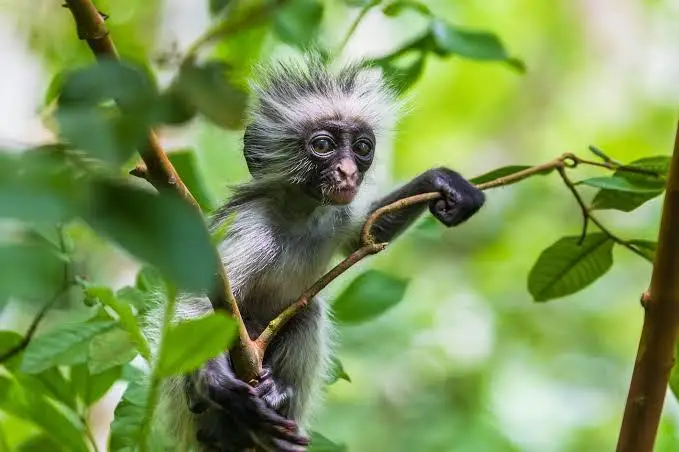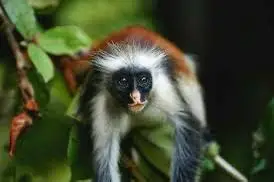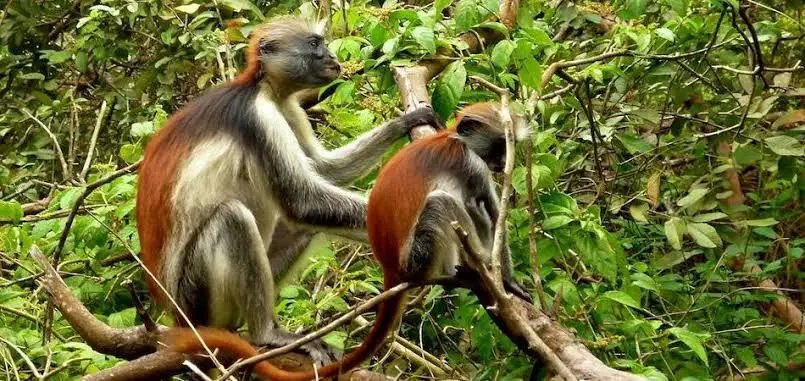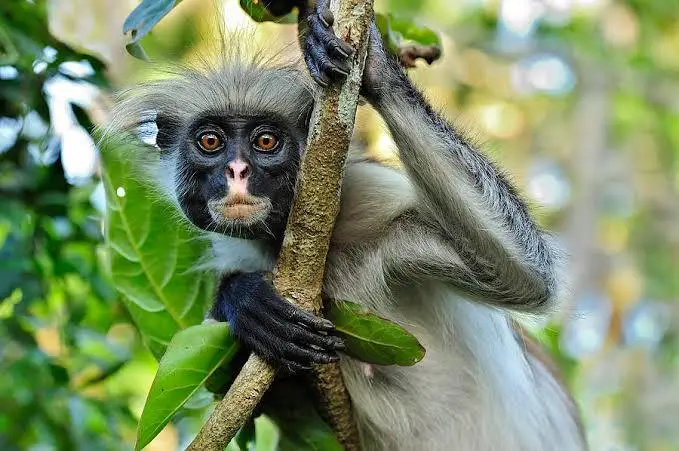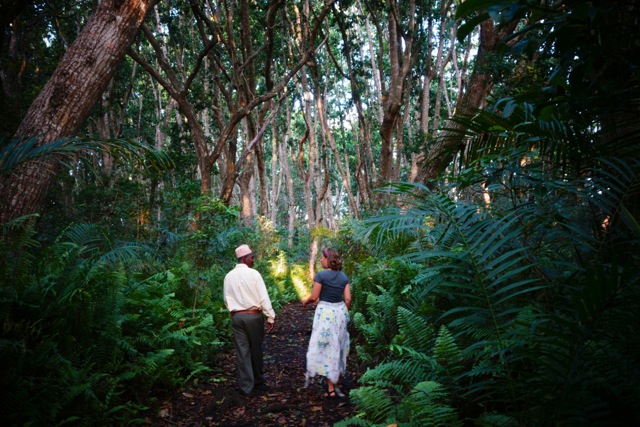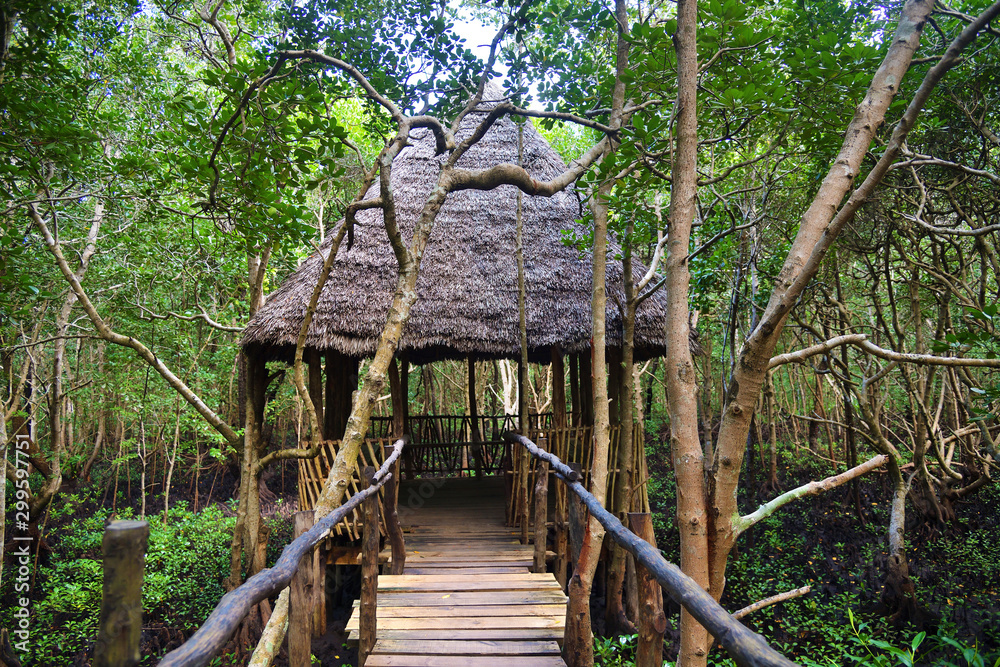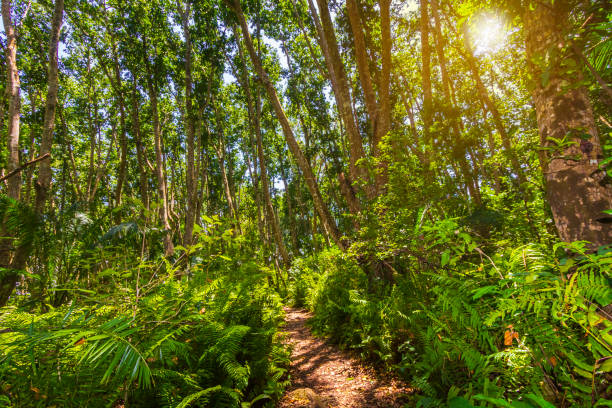Detailed Information
Itinerary
Gallery
Book
Jozani Chwaka Bay National Park is a significant conservation area located in the central-eastern region of Zanzibar, Tanzania. The park spans approximately 50 square kilometers and is renowned for its rich biodiversity and conservation efforts. One of its main attractions is the preservation of the endangered Zanzibar red colobus monkey, a species endemic to the archipelago. Visitors to Jozani National Park can embark on guided nature walks along well-maintained trails, allowing them to observe these unique monkeys in their natural habitat. The park’s diverse ecosystems include tropical forests, mangroves, and swamps, providing a home for various plant and animal species.
In addition to its wildlife, Jozani National Park offers visitors an educational experience about conservation initiatives and the importance of preserving Zanzibar’s natural heritage. Guided tours often provide insights into the local flora and fauna, with an emphasis on the ecological significance of the park. With its commitment to environmental stewardship, Jozani Chwaka Bay National Park stands as a testament to Zanzibar’s dedication to the conservation of its unique ecosystems and the protection of endangered species, contributing to the region’s ecological sustainability and offering a memorable experience for nature enthusiasts and wildlife lovers.
CHECK WITH OUR TOUR EXPERT FOR MORE INFORMATION&BOOKING
Jozani Forest is home to the uncommon red colobus monkey. As you stroll through the forest, you’ll find the opportunity to see the monkeys very close and find out about the different plants and creatures that call this spot home.
The tour to Jozani/ Chwaka which the national Park where tourists get to see the rare Red Colobus Monkey JozaniChwaka which is the National Park covers a region of around 6,200 sections of land and is comprised of a general forest.
Jozani forest was declared to be a National reserve in the 1960s. The recreation center offers a welcome. What to find in Stone Town Zanzibar break from beach life and stands apart for its amazing view and biodiversity. JozaniChwaka Bay Public Park is typically home to the uncommon and endangered Zanzibar Red Colobus Monkey. This monkey is endemic to the island and just 2,500 them remaining. Meanwhile, their conservation has commonly been fruitful yet the way that they are just found on the island makes them inclined to elimination.
The principal motivation to tour the Jozani forest is to see red Colobus monkeys in Zanzibar. Rather than different monkeys that either run from you, it possible for you to take your camera and take a photograph with red colobus monkeys that are incredibly loose and un-vexatious. Subsequent to investing some energy spending time with the red colobus monkeys we proceeded with our tour of the Jozani timberland, passing along a couple of trails through the verdure.
Intriguing Plants
There is a wide range of extraordinary and fascinating plant and tree species.
A lot of what goes into neighborhood day by day living, home development, medications, and tools, all actually comes from the Zanzibar forest or sea. Another piece of the Jozani timberland visit is the all-around protected mangrove woodland. We strolled a short circle on a raised wooden walkway, going through the mangroves over the saltwater.
Jozani Forest tour
Jozani Forest is most popular for its red colobus monkeys, which are endemic to Zanzibar. Around 20 years prior, the monkeys were considered to be at risk for eradication. This pattern has since switched because of the conservation venture.
In the wake of visiting the red colobus, you will tour across to the Pete-Jozani Mangrove Boardwalk. It laces through coral shrubbery vegetation, mangrove backwoods, and across a river. You stroll through mangrove backwoods which is amazingly pivotal to Zanzibar’s biological systems, giving territory to numerous reptiles, snakes, and birdlife just as forestalling the waterfront erosion. Jozani Forest is arranged 38 km southeast of Stone Town. Neighborhood people groups are associated with the task and a portion of your extra charge adds to improvement ventures and to remunerate nearby ranchers whose harvests are regularly harmed by the red colobus monkeys.
Jozani Forest has numerous habitats such as swamp forest, evergreen shrubberies, mangroves, just as an assortment of untamed life, such as sykes and red colobus monkeys, shrubbery pigs, Ader’s duiker, and suni impalas, elephant wenches, chameleons, and heaps of birdlife.
Jozani Forest, otherwise called JozaniChwaka Bay National Park, is the major natural park on Zanzibar Island. It is a little (just 50 kilometers square) yet lovely and serene spot to visit. It is one of the exciting views to tours.
The forest is a characteristic drug store and genuinely an astounding wellspring of common cures. Each plant or tree fixes something. The wonderful thing about the Jozani forest tour is that the tallness of the trees and palms are simply exceptional.
Red Colobus Monkeys
The spot is typically well known for rare Red Colobus Monkeys and considerably harder to spot – Zanzibar Sykes’ monkey, an exceptionally uncommon monkey species interesting to Zanzibar. Aside from the Red Colobus Monkeys, you may see Bushbaby, 50 unique species of butterflies, and 40 species of flying creatures are accessible. The forest is one of the final asylums known to mankind of the red colobus monkeys. The forest is 6,207 sections of land in size.
The species were endangered yet their numbers have been expanding lately. It is assessed that there are presently 2,000-2,500 monkeys. They are wild yet it is conceivable to draw near to them and they carry on their standard exercises like human visitors don’t exist by any stretch of the imagination – are incredibly loose and un-annoying. The slippery Zanzibar panther is said to take care of here around evening time – perhaps this is the explanation behind the hold to just be opened during the day!
It isn’t allowed to stroll off the ways without an official guide to ensure the untamed life. There is an organization of different nature trails driving visitors through the woods. The principal trail starts at the recreation center passageway and goes for a relaxed walk for 60 minutes.
There is a mangrove zone on the opposite side of the recreation center. There are different plants and trees that are therapeutic and are utilized as characteristic cures. There is no requirement for a guide on the mangrove swamp footpath as you can’t get lost on the promenade prompting just a single course.
A mangrove promenade gives tourists the likelihood to have a view into the exceptional mangrove living space which could be agreeable. Jozani forest is a decent spot to energize and is the nearest you can get to nature separated from different attractions on Zanzibar.
